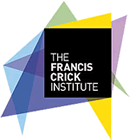About the Project
This 4-year PhD studentship is offered in Dr Ilaria Malanchi’s Group based at the Francis Crick Institute (the Crick) & Dr Molly Steven’s Group based at Imperial College London.
Interactions between tumour cells and their microenvironment play a critical role in the progression and metastasis of cancer. Furthermore, the role of inflammatory cells in modulating the development and progression of metastatic cell colonisation has recently been uncovered by Dr Ilaria Malanchi’s group, exposing new avenues for therapeutic intervention for this disease. In the collaboration between Dr Malanchi and Prof Molly Stevens, this PhD project will utilise a combination of molecular biology and bioengineering approaches to further understand how changes in various cellular and extracellular components regulate tumour initiation and growth. Specifically, the student will employ established mouse models of inflammatory cell-mediated metastasis (Wculek and Malanchi Nature, 2015; Malanchi, et al. Nature, 2012) to generate diseased tissue, which will be excised and studied for its biochemical fingerprint via micro-Raman spectroscopic (RS) analysis, a technique that has been extensively used in the Stevens Group for characterising cells and tissues (Kallepitis, Stevens, et al. Nature Communications, 2017; Bertazzo, Stevens, et al. Nature Materials, 2013; Gentleman, Stevens, et al. Nature Materials, 2009). Furthermore, the tissue samples will be interfaced with porous silicon nanoneedles, a novel nanomaterial substrate developed in the Stevens Group (Chiappini, Stevens, et al. Nature Materials, 2014), which can provide a spatially-resolved sampling of the protein components present on and within the cells that comprise the tumour. Finally, leveraging access to transgenic mouse models available through the Crick Institute, the student will subsequently have the opportunity to repeat these experiments using a variety of systems in which tissue from genetically-modified mice will be analysed in order to identify how specific biological components (i.e. neutrophils) affect the resulting biochemical signature.
Talented and motivated students passionate about doing research are invited to apply for this PhD position. The successful applicant will join the Crick PhD Programme in September 2019 and will register for their PhD at Imperial College London.
Applicants should hold or expect to gain a first/upper second-class honours degree or equivalent in a relevant subject and have appropriate research experience as part of, or outside of, a university degree course and/or a Masters degree in a relevant subject.
APPLICATIONS MUST BE MADE ONLINE VIA OUR WEBSITE (ACCESSIBLE VIA THE ‘APPLY NOW’ LINK ABOVE) BY 12:00 (NOON) NOVEMBER 13 2018. APPLICATIONS WILL NOT BE ACCEPTED IN ANY OTHER FORMAT.
References
1. Malanchi, I., Santamaria-Martínez, A., Susanto, E., Peng, H., Lehr, H.-A., Delaloye, J.-F. and Huelsken, J. (2012)
Interactions between cancer stem cells and their niche govern metastatic colonization.
Nature 481: 85-89. PubMed abstract
2. Wculek, S. K. and Malanchi, I. (2015)
Neutrophils support lung colonization of metastasis-initiating breast cancer cells.
Nature 528: 413-417. PubMed abstract
3. Kallepitis, C., Bergholt, M. S., Mazo, M. M., Leonardo, V., Skaalure, S. C., Maynard, S. A. and Stevens, M. M. (2017)
Quantitative volumetric Raman imaging of three dimensional cell cultures.
Nature Communications 8: 14843. PubMed abstract
4. Bertazzo, S., Gentleman, E., Cloyd, K. L., Chester, A. H., Yacoub, M. H. and Stevens, M. M. (2013)
Nano-analytical electron microscopy reveals fundamental insights into human cardiovascular tissue calcification.
Nature Materials 12: 576-583. PubMed abstract
5. Chiappini, C., De Rosa, E., Martinez, J. O., Liu, X., Steele, J., Stevens, M. M. and Tasciotti, E. (2015)
Biodegradable silicon nanoneedles delivering nucleic acids intracellularly induce localized in vivo neovascularization.
Nature Materials 14: 532-539. PubMed abstract

 Continue with Facebook
Continue with Facebook

